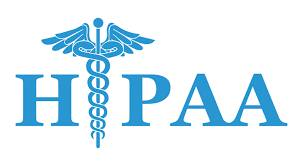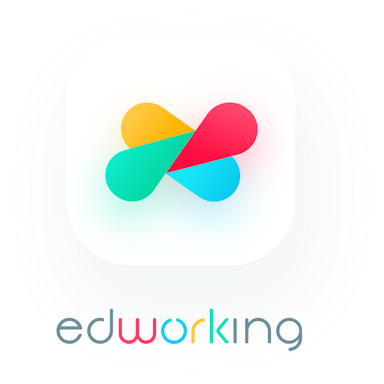The unique challenges posed by this sector, from regulatory compliance to life-critical systems, demand a specialized approach. Healthcare project management not only requires traditional project management skills but also a deep understanding of the healthcare environment. This article will delve into the essential strategies and best practices for managing healthcare projects effectively, ensuring they deliver value and quality patient care.
 Understanding the Healthcare Project Environment
Understanding the Healthcare Project Environment
The Unique Challenges of Healthcare Projects
Healthcare projects are inherently complex, often involving multiple stakeholders, strict regulatory requirements, and the need for precise coordination. Unlike projects in other sectors, healthcare projects can directly impact patient outcomes, making accuracy and timeliness paramount. To navigate these complexities, project managers must be adept in understanding the healthcare landscape, including:
- Regulatory Compliance: Healthcare projects must adhere to a myriad of regulations, such as HIPAA in the United States, which govern the handling of patient data.
- Stakeholder Management: From clinicians to administrators, and patients to insurance companies, effectively managing diverse stakeholder expectations is crucial.
- Technological Integration: The integration of new technologies into existing healthcare systems requires careful planning to ensure compatibility and minimal disruption.

The Importance of Interdisciplinary Teams
The interdisciplinary nature of healthcare teams adds another layer of complexity. These teams often comprise professionals from varied backgrounds - doctors, nurses, IT specialists, and administrators. Effective project management in this context involves fostering collaboration and communication among these diverse groups. Ensuring that every team member understands the project's objectives and their role in achieving them is essential for success.
Building Effective Communication Channels
Effective communication is the lifeblood of any successful project, more so in healthcare. Establishing clear, open, and efficient communication channels ensures that everyone is on the same page. This includes regular meetings, updates, and accessible communication tools. In healthcare, where decisions can have immediate effects on patient care, ensuring that information is accurately and quickly disseminated is vital.
Leveraging Technology for Collaboration
In the age of digital transformation, leveraging technology for better collaboration cannot be overstated. Tools like electronic health records (EHRs), project management software, and communication platforms play a crucial role in streamlining processes and enhancing team collaboration. The main difference between healthcare project management tools and generic project management tools lies in their ability to handle healthcare-specific data and comply with relevant regulations.
 Planning and Executing Healthcare Projects
Planning and Executing Healthcare Projects

Developing a Comprehensive Project Plan
A well-crafted project plan is the backbone of any successful healthcare project. This plan should encompass all aspects of the project, from scope and budget to timelines and resource allocation. In healthcare, where projects can range from implementing new medical technology to launching public health initiatives, precision in planning is non-negotiable.
- Risk Management: Identify potential risks and develop mitigation strategies. Healthcare projects often face unique risks, such as regulatory changes or technological failures, which can significantly impact project outcomes.
- Budgeting and Resource Allocation: Healthcare projects must be financially viable and efficiently use resources. This involves careful budgeting and resource planning to ensure the project is both cost-effective and high-quality.
Setting Realistic Timelines
Healthcare projects often have strict deadlines due to patient needs or regulatory timelines. Setting realistic and achievable timelines, while allowing for flexibility in case of unforeseen events, is vital. This involves understanding the scope of work and the dependencies between different project tasks.
Execution and Monitoring
Once the planning phase is complete, the focus shifts to executing the project plan. This stage involves coordinating tasks, managing resources, and ensuring that the project remains on track.
- Task Coordination and Delegation: Effective task coordination and delegation are crucial in ensuring that project activities are carried out efficiently. Utilizing the strengths of team members and ensuring workload balance is key.
- Monitoring Progress: Regular monitoring of the project’s progress against the set milestones and objectives helps in identifying any deviations early and taking corrective actions.

Utilizing Project Management Tools
In today's digital age, project management tools are invaluable for keeping track of tasks, deadlines, and communications. In healthcare, these tools must also ensure data security and compliance with healthcare regulations. They provide a centralized platform for monitoring project progress, facilitating communication, and managing resources.
 Best Practices in Healthcare Project Management
Best Practices in Healthcare Project Management

Embracing Agile Methodologies
In a sector as dynamic as healthcare, adopting agile methodologies can be highly beneficial. Agile allows for more flexibility and adaptability, which is essential in a field where project requirements can change rapidly due to new discoveries, policy changes, or emergency situations.
- Iterative Development: This approach involves breaking the project into smaller, manageable segments, allowing for continuous evaluation and adjustments.
- Responsive to Change: Agile methodologies make it easier to respond to changes without derailing the entire project.
Fostering a Culture of Continuous Improvement
Healthcare is an ever-evolving field, and continuous improvement is key to keeping up with changes and advancements. This involves not only staying updated with the latest in medical technology and practices but also encouraging a culture of learning and innovation within the project team.
- Feedback Loops: Regular feedback from all stakeholders, including patients, can provide valuable insights and drive improvements.
- Learning from Past Projects: Analyzing the successes and challenges of past projects can provide lessons for future endeavors.
Prioritizing Patient Safety and Quality Care
At the heart of all healthcare projects is the goal of improving patient care and safety. Every decision and action within the project should be evaluated against this primary objective. This involves not only adhering to medical best practices and standards but also ensuring that patient welfare is always the top priority.
 Integrating Technology and Innovation in Healthcare Projects
Integrating Technology and Innovation in Healthcare Projects

Leveraging Digital Health Solutions
In the realm of healthcare project management, the integration of digital health solutions plays a transformative role. The incorporation of telemedicine, mobile health applications, and advanced data analytics can significantly enhance patient care and operational efficiency.
- Telemedicine: Expanding access to care, telemedicine allows for remote consultations, essential in increasing patient reach and convenience.
- Data Analytics: Utilizing data analytics helps in making informed decisions, optimizing patient outcomes, and enhancing operational efficiency.
Embracing Electronic Health Records (EHRs)
Electronic Health Records (EHRs) have revolutionized how patient data is stored and accessed. Integrating EHRs into healthcare projects ensures better coordination of care, improves patient outcomes, and increases operational efficiency. The challenge lies in seamlessly integrating these systems into existing workflows while ensuring data security and privacy.
Encouraging Technological Adaptability
The rapid pace of technological advancement in healthcare demands a high degree of adaptability. Project teams must be prepared to integrate new technologies and innovations as they emerge, which often requires ongoing training and a willingness to revise workflows and systems.
- Training and Development: Regular training sessions for staff on new technologies and processes ensure smooth transitions and effective utilization.
- Future-Proofing Projects: Designing projects with the flexibility to incorporate future technological advancements can save time and resources in the long run.
 Conclusion
Conclusion
Effective healthcare project management is a multifaceted endeavor that requires a balance of specialized knowledge, strategic planning, and adaptability. It involves understanding the unique challenges of the healthcare sector, such as regulatory compliance and stakeholder management, and addressing these challenges through comprehensive planning, agile methodologies, and embracing technological advancements.
Incorporating tools like Edworking can greatly enhance the efficiency and effectiveness of healthcare project management. With its robust collaboration features, secure data handling, and adaptable platform, Edworking can help healthcare project managers navigate the complexities of their projects, ensuring successful outcomes that prioritize patient safety and quality care.
In this rapidly evolving field, the ability to manage projects effectively can make a significant difference in the quality of healthcare services provided. As we look to the future, continuous learning, technological integration, and adherence to best practices will remain key drivers in advancing healthcare project management.
Interested in assessing your management aptitude or communication style, especially in the context of healthcare project management? Consider taking the free Edworking online Management Aptitude Test or explore your communication style with the free Edworking online Communication Style Quiz. These tools can provide valuable insights for enhancing your project management skills.

FAQs
oration among team members. However, integrating these technologies requires careful planning to ensure they align with healthcare standards and enhance, rather than disrupt, existing workflows.







